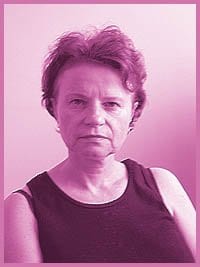Staff at Church St’s Hassle Free Clinic are struggling to cope with a steady increase of patients seeking sexual health services.
The problem is greatest at the women’s clinic, where routine visits require often more attention because of the issue of birth control and pregnancy, as well as dealing with sexually transmitted infections. In the past few months, the evening drop-in clinic has sometimes been forced to stop taking patients after the first hour due to the backlog.
“People come to the Hassle Free because they need help now,” says Jane Greer, program co-ordinator of the women’s clinic. “We currently take appointments in the day for one week away or immediately at the drop-ins. We open the door and they’re lined up down the hall.”
There are other clinics in the city that provide sexual health services, but the Hassle Free is the oldest, best known and the one physicians who rarely deal with STIs refer their patients to. It’s often used by people who may not feel comfortable confiding in a family doctor about their sexual practices, and for those with no other doctor to go to. The clinics also deal with people without health cards who may be immigrants or from other provinces.
Greer says the women’s clinic staff, four full-time workers and one part-time one, have been working at a burn-out pace.
“Recently we saw over 55 women in a four hour clinic,” says Greer. A few years ago, the number of patient visits during a four-hour evening clinic ranged between 30 and 40. Now, it’s between 45 and 50.
“I absolutely do not believe care has been compromised, but if something comes up we have to re-book the woman for a later time,” says Greer.
Things are also busy at the men’s clinic, says program coordinator Robert Trow. The men’s clinic have 4.8 staff positions for 27 clinical hours and an on-site public health nurse. There are also doctors available. In the past two years, the men’s clinic has averaged 50 to 75 patients per clinic.
“Look at the positives in HIV seroconversions,” Trow says. “They went up dramatically until 2001. The positives in gonorrhoea and chlamydia in rectal infection has increased dramatically as well. Men often wait for over an hour to be seen in our evening drop-in clinics.”
In 1998 and ’99, the men’s clinic clocked about 12,500 patient visits. By 2001 the number reached 14,500.
At the women’s clinic in ’98 and ’99, just under 6,000 women visited. By 2001 the number reached almost 8,000. There has been no staff increases.
“Our core funding is approximately $464,000 from the City Of Toronto,” says Greer. “It used to be provincial but was downloaded in 1998 along with other public health services. The city has given us an additional $40,000 to assist in covering extended health care costs. The rest is the same funding we have been getting since 1992 – 10 years without an increase.”
Having people wait too long to get checked often defeats the purpose of a walk-in clinic.
“Public health [authorities] believes that STDs need to be treated right away to stop transmission. You don’t want to wait a week,” says Trow.
The Hassle Free rates among the lowest cost per visit of all the city’s public health clinics – about $26 compared to $47.


 Why you can trust Xtra
Why you can trust Xtra


